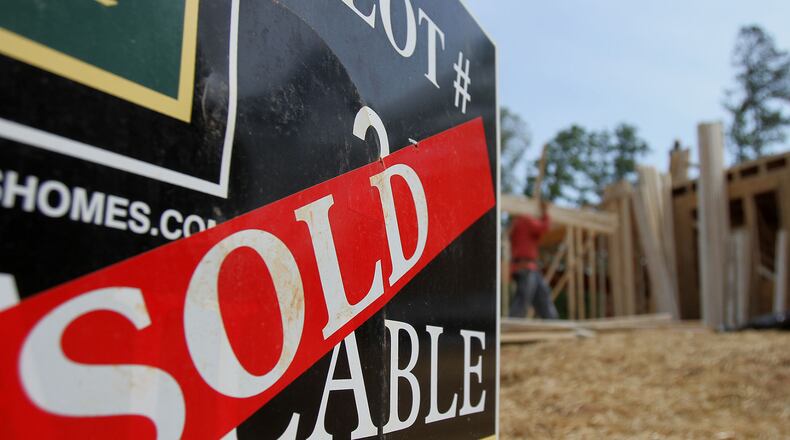Metro Atlanta logged its ninth straight month of double-digit gains in home prices, as the region continues to recover from a housing crash that devastated values here.
However, the pace of the rebound is slowing, with the latest report — for August — marking the fourth straight month in which growth was a bit smaller than the month before.
Prices in metro Atlanta rose 18.4 percent in August compared to the same month a year ago, according to the widely watched S&P Case-Shiller Home Price Index, released Tuesday. Nationally, prices were up 12.8 percent.
Atlanta’s increases peaked in April, when home prices jumped 20.8 percent year-over-year. Here are the key points:
Why it’s happening
Prices are rising rapidly because the number of homes for sale has diminished to historically low levels, while demand is still high.
In August, 26.2 percent of homes went under contract within two weeks of being listed, according to data from Redfin.
“Tight inventory conditions put pressure on home prices,” said James Marks, managing broker for Redfin in Atlanta.
Supply is low in part because large investor groups have bought thousands of homes in metro Atlanta, converting them to rentals. Another factor: Owners who still owe more on their homes than they are worth do not want to sell until prices rise further.
What it means for you
At the end of June, 44 percent of metro Atlanta homeowners still owed more than their houses were worth on paper, according to data from Zillow.
Rising values bring that number down.
“It’s a good thing,” Marks said. “Because prices are recovering, people aren’t trapped in their homes.”
Home prices fell to 1996 levels in the depths of the recession. Now they are back to mid-2002 levels, as measured by Case-Shiller.
Why it matters
Home values are important even to people who aren’t likely to sell or buy any time soon. They contribute to the so-called “wealth effect” that helps drive the broader economy by making people more confident about purchases of all types.
What’s ahead
Some shoppers are frustrated by low supply, and plan to take a break until the spring, Marks said. Sales usually slow in the fall and winter, and Marks said he saw sales volumes drop in September. Prices, though, continued to rise.
Price increases that outpace wages and inflation won’t last, said David Blitzer, managing director of S&P/Dow Jones Indices. At some point, he said, people will get priced out of houses, and that will slow the increases. Higher mortgage rates also slow sales.
Blitzer said he doesn’t hear euphoria or outrageous expectations about prices. He does not think the recent run-up is a new housing bubble.
“It is clearly still on a strong recovery,” he said. “Right now, it doesn’t look too scary.”
About the Author
Keep Reading
The Latest
Featured



